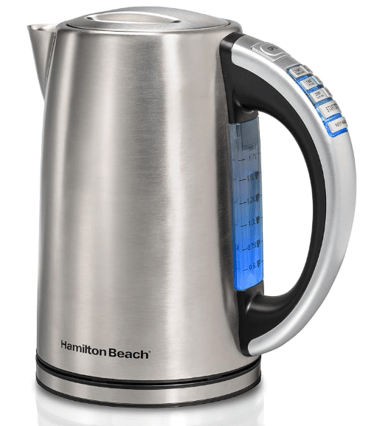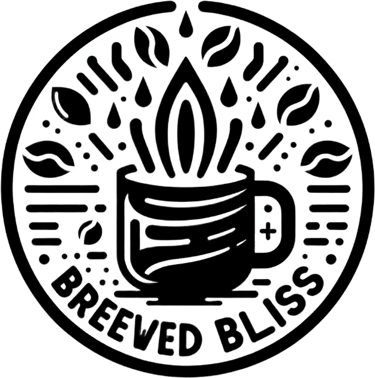The Impact of Different Brews on Sleep Cycles
BLOG NEWS
10/13/20257 min read


Understanding Sleep Cycles
Sleep is a complex biological process that occurs in distinct cycles, primarily categorized into Non-Rapid Eye Movement (NREM) sleep and Rapid Eye Movement (REM) sleep. Understanding the structure of these cycles is paramount, as both NREM and REM stages contribute significantly to overall sleep quality. A typical sleep cycle lasts about 90 minutes and includes several NREM stages followed by a period of REM sleep.
NREM sleep is further divided into three stages: N1, N2, and N3. Stage N1 serves as the initial transition from wakefulness to sleep, lasting only a few minutes. As one progresses into Stage N2, body temperature begins to drop, and heart rate slows, occupying approximately 50% of total sleep time. The third stage, N3, also known as deep sleep, is vital for physical recovery and memory consolidation. During this stage, the body engages in the most restorative processes.
Conversely, REM sleep is characterized by rapid movements of the eyes, increased brain activity, and vivid dreams. This stage plays a crucial role in emotional regulation and learning. A regular sleep schedule—wherein sleep occurs at the same time each night—enhances the ability to cycle through these stages efficiently, thereby improving sleep quality and overall well-being.
However, sleep cycles can be disrupted by various factors, including lifestyle choices and environmental influences. Caffeine, a common stimulant found in coffee and teas, can significantly impact sleep by delaying the onset of sleep and reducing overall sleep duration. Its effects can linger for several hours, thus interfering with both NREM and REM stages of sleep. Understanding these dynamics between sleep cycles and caffeine consumption is essential for optimizing rest and health. Such insights prepare us to delve deeper into how different brews influence these critical sleep patterns.
Caffeine and Its Effects on Sleep
Caffeine is a central nervous system stimulant that plays a significant role in countless beverages, including coffee, tea, and energy drinks. It is widely acknowledged for its ability to enhance alertness and reduce fatigue. Caffeine primarily exerts its effects by blocking the action of adenosine, a neurotransmitter that promotes sleep. This inhibition leads to increased neuronal firing and the release of other neurotransmitters, subsequently boosting arousal and wakefulness.
The half-life of caffeine in the human body typically ranges between three to seven hours, although this can vary based on numerous factors, including individual metabolism, age, and genetic predisposition. For sensitive individuals or those with slower metabolism rates, caffeine consumption in the afternoon or evening can result in extended periods of wakefulness or diminished sleep quality. Consequently, the timing of caffeine intake becomes crucial to maintaining regular sleep patterns.
Numerous studies have examined the relationship between caffeine consumption and sleep disturbances. Research indicates a clear correlation between the timing and amount of caffeine consumed and resultant sleep interference. For instance, a study published in the Journal of Clinical Sleep Medicine revealed that consuming caffeine even six hours before bedtime significantly disrupted sleep architecture, impacting both sleep onset latency and overall sleep duration. Individuals particularly sensitive to caffeine may experience heightened effects, exacerbating their difficulties in falling or staying asleep.
Moreover, consumption of caffeinated beverages late in the day can lead to increased awakenings during the night and a reduction in restorative REM sleep. This disruption can have cascading effects on cognitive function and emotional well-being. Given these findings, understanding the impact of caffeine on sleep is paramount, especially for those aiming to optimize sleep quality and maintain healthy sleep cycles.
Herbal Brews and Sleep Enhancement
Herbal brews have gained recognition for their potential to enhance sleep quality. Many individuals turn to these natural infusions to promote relaxation and facilitate a restful night’s sleep. Among the most popular herbal teas are chamomile, valerian root, and lavender, each known for its soothing properties.
Chamomile tea, derived from the flower of the chamomile plant, is often touted for its calming effects. Research indicates that chamomile can help reduce anxiety and improve sleep quality by acting as a mild sedative. A study published in the Journal of Advanced Nursing found that participants who consumed chamomile tea reported better sleep quality compared to those who did not. This gentle brew can be a great addition to one’s evening routine, making it a favored choice for those seeking a peaceful end to the day.
Valerian root is another powerful herb recognized for its sleep-inducing properties. Often available in tea form, it is believed to increase the levels of a neurotransmitter called gamma-aminobutyric acid (GABA), which promotes relaxation and reduces the time taken to fall asleep. Numerous scientific studies, including those featured in the American Journal of Medicine, have highlighted valerian root's efficacy in treating insomnia and enhancing sleep quality. Its distinct earthy flavor can be complemented with honey or lemon for those who prefer a tastier brew.
Lavender, famed for its aromatic qualities, is also celebrated for its calming effects. Drinking lavender tea before bed may help to lower heart rate and blood pressure, signaling the body to wind down. Studies have shown that inhaling lavender oil leads to improved sleep quality and may be equally effective when consumed as a tea.
To maximize the benefits of these herbal brews, it is advisable to consume them about 30 minutes before bedtime. Incorporating these teas into a nightly ritual not only enriches the experience but also establishes a consistent signal to the body that it is time to relax and prepare for sleep.
Balancing Brew Consumption for Better Sleep
Maintaining a balance in brew consumption can significantly enhance sleep quality while still allowing individuals to enjoy their favorite beverages. One of the primary considerations in achieving this balance is to understand the timing of caffeinated versus herbal brews. It is generally advisable to limit caffeinated beverages, such as coffee or certain teas, to the earlier part of the day. Consuming these drinks in the morning or early afternoon helps prevent carryover effects into the evening hours, as caffeine can remain in the body for several hours, potentially disrupting sleep cycles.
For those who are particularly sensitive to caffeine, it may be beneficial to reduce overall intake or opt for decaffeinated options later in the day. Alternatives such as herbal teas can be a soothing option for the evening, often containing natural ingredients known to promote relaxation, such as chamomile or valerian root. These brews can help individuals wind down and prepare for restful slumber.
Moreover, it is essential to consider individual differences in caffeine sensitivity, as some people metabolize caffeine more slowly than others. Monitoring how different brews affect personal sleep quality can provide insights into individual consumption preferences. Keeping a journal to track brew intake and corresponding sleep patterns may illuminate beneficial routines.
In addition to selecting appropriate types of brews, establishing a personal sleep hygiene routine can augment the positive effects of beverages on sleep. This could involve creating consistent sleep schedules, limiting screen time before bed, and fostering a calming bedtime environment. By integrating thoughtful brew consumption with healthy sleep practices, individuals can enjoy their preferred beverages without compromising their sleep quality.
Disclosure: This post contains affiliate links. If you click and make a purchase, I may earn a small commission at no extra cost to you.
Here is one of favorite fast boiling kettles..
Hamilton Beach 40880


Click 'Shop Now!' to find on Amazon now...
🛠️ Specification
The Hamilton Beach 1.7 Liter Temperature Control Electric Kettle is a versatile and efficient appliance designed for quick and precise hot water preparation. With a powerful 1500-watt heating element, it brings water to a boil in just a few minutes, making it ideal for fast-paced mornings. The kettle offers six preset temperature settings, tailored for different beverages such as green tea, white tea, oolong, and coffee, allowing users to brew at the optimal temperature. Its 1.7-liter capacity is large enough for multiple cups, yet compact enough to fit neatly on any countertop. It features a keep-warm function, cord-free serving, and automatic shut-off with boil-dry protection for added safety and convenience. A digital display and simple push-button controls make it user-friendly, even for those in a hurry.
✅ Advantages and Disadvantages
One of the most notable advantages of the Hamilton Beach electric kettle is its temperature control functionality, which is often missing in kettles at this price point. It allows for more precise brewing, especially for tea drinkers who need different heat levels. The fast heating performance, thanks to its 1500-watt power, means that you can boil a full kettle in about 5 minutes or less—perfect when you're rushing out the door. The keep-warm feature is another plus, holding your selected temperature for up to 30 minutes, so you don’t have to reboil if you get momentarily distracted.
On the downside, while the digital interface is helpful, it can feel a bit basic or slow to respond at times. Some users may find that the plastic components, particularly around the lid and handle, don't feel as premium as metal-bodied kettles. Also, although it does boil quickly, it’s slightly less powerful than some 1800W or 2400W models, meaning it may take a minute or so longer for a full boil in comparison. However, these are minor drawbacks for what is otherwise a very capable and affordable kettle.
🔍 My Review
As someone who depends on a quick cup of tea or hot lemon water before heading out in the morning, I found the Hamilton Beach kettle to be surprisingly efficient and reliable. It heats water fast enough that I don’t feel like I’m waiting around, and the temperature presets make it easy to switch between green tea and black tea without having to guess. I especially like the keep-warm function, which lets me prep early and still have hot water ready if I get sidetracked. It feels sturdy enough for daily use, and the handle is comfortable to grip. The base is compact and doesn’t take up much space, which is helpful in my small kitchen. Overall, it’s not the fanciest kettle out there, but it gets the job done quickly, and that’s exactly what I need during busy mornings.
🗣️ Other Customers’ Reviews
Many other customers highlight the speed and convenience of this kettle as its top-selling points. People often mention how fast it boils compared to traditional stovetop models, and the temperature control settings are frequently praised by tea lovers who appreciate not burning delicate leaves. Several users have noted that the kettle is intuitive to use, even for those not particularly tech-savvy. The auto shut-off and safety features also receive positive remarks, especially from households with children. That said, some reviews mention that the kettle's outer casing can get warm to the touch, and a few people wished the materials felt a bit more high-end. However, overall sentiment is strong—most agree that for the price and feature set, this kettle is a dependable and efficient choice for anyone with a rushed morning routine.
